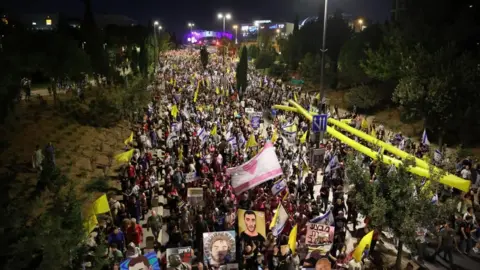The conflict escalated when Israeli air strikes hit the Wadi Faara area of Lebanon's eastern Bekaa Valley, leading to the deaths of at least 12 people, as reported by Baalbek-Hermel Governor Bachir Khodr on X. Among the deceased, seven were Syrian nationals, including a family of five, with additional casualties reported in Shmustar. This incident marks the most deadly military engagement since a fragile ceasefire concluded a year-long clash between Israel and Hezbollah, a situation characterized by intense combat that significantly compromised the militant group.
The Israeli military confirmed that multiple military installations associated with Hezbollah, including training facilities of its elite Radwan Force, were targeted. The military action raises concerns about the violation of the ceasefire agreement, which Hezbollah's Al-Manar TV stated infringed upon both the ceasefire terms and Lebanon's national sovereignty.
In communications to media outlets, Lt Col Avichay Adraee, the Arabic spokesperson for the Israel Defense Forces (IDF), indicated that the strikes were aimed at operational camps where terrorist operatives were stored combat gear. He noted that these actions were necessary to address what the IDF perceives as a blatant violation of past agreements, emphasizing that Hezbollah's rearmament poses a future threat to Israel.
Israeli Defense Minister Israel Katz has reiterated that the strikes serve as a strong warning to Hezbollah and the Lebanese authorities, allowing no leeway for the militant group to restore its military capabilities. The ceasefire agreement, mediated by U.S. officials last November, called for complete compliance with UN Security Council resolution 1701, following the last war in 2006. This resolution mandated Hezbollah to retreat its forces and limited the presence of armed groups in southern Lebanon to the Lebanese army and UN peacekeepers.
Despite these efforts, Israeli forces have retained military establishments at five strategic sites in southern Lebanon, further complicating the relationship between the two nations and elevating fears of a potential return to conflict.
The Israeli military confirmed that multiple military installations associated with Hezbollah, including training facilities of its elite Radwan Force, were targeted. The military action raises concerns about the violation of the ceasefire agreement, which Hezbollah's Al-Manar TV stated infringed upon both the ceasefire terms and Lebanon's national sovereignty.
In communications to media outlets, Lt Col Avichay Adraee, the Arabic spokesperson for the Israel Defense Forces (IDF), indicated that the strikes were aimed at operational camps where terrorist operatives were stored combat gear. He noted that these actions were necessary to address what the IDF perceives as a blatant violation of past agreements, emphasizing that Hezbollah's rearmament poses a future threat to Israel.
Israeli Defense Minister Israel Katz has reiterated that the strikes serve as a strong warning to Hezbollah and the Lebanese authorities, allowing no leeway for the militant group to restore its military capabilities. The ceasefire agreement, mediated by U.S. officials last November, called for complete compliance with UN Security Council resolution 1701, following the last war in 2006. This resolution mandated Hezbollah to retreat its forces and limited the presence of armed groups in southern Lebanon to the Lebanese army and UN peacekeepers.
Despite these efforts, Israeli forces have retained military establishments at five strategic sites in southern Lebanon, further complicating the relationship between the two nations and elevating fears of a potential return to conflict.



















